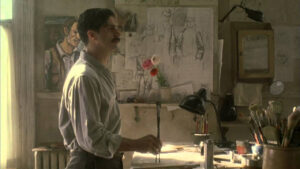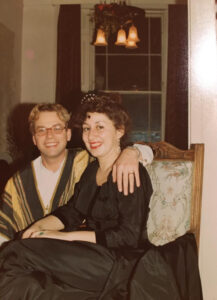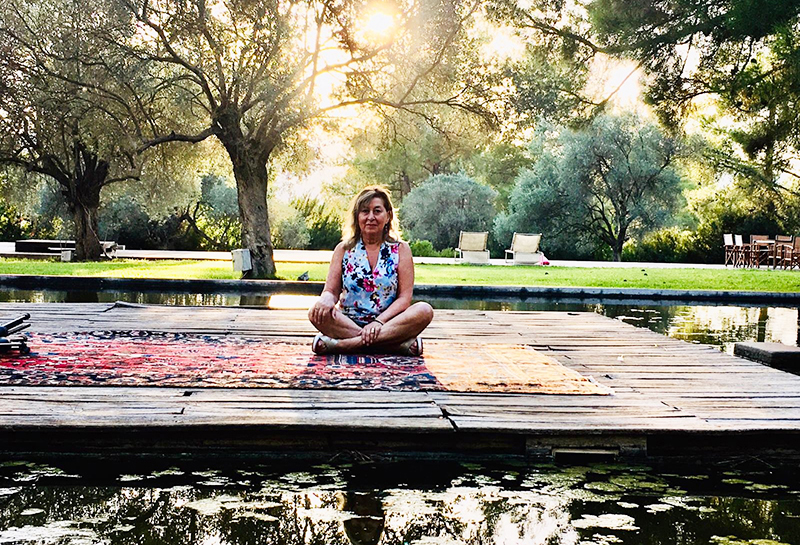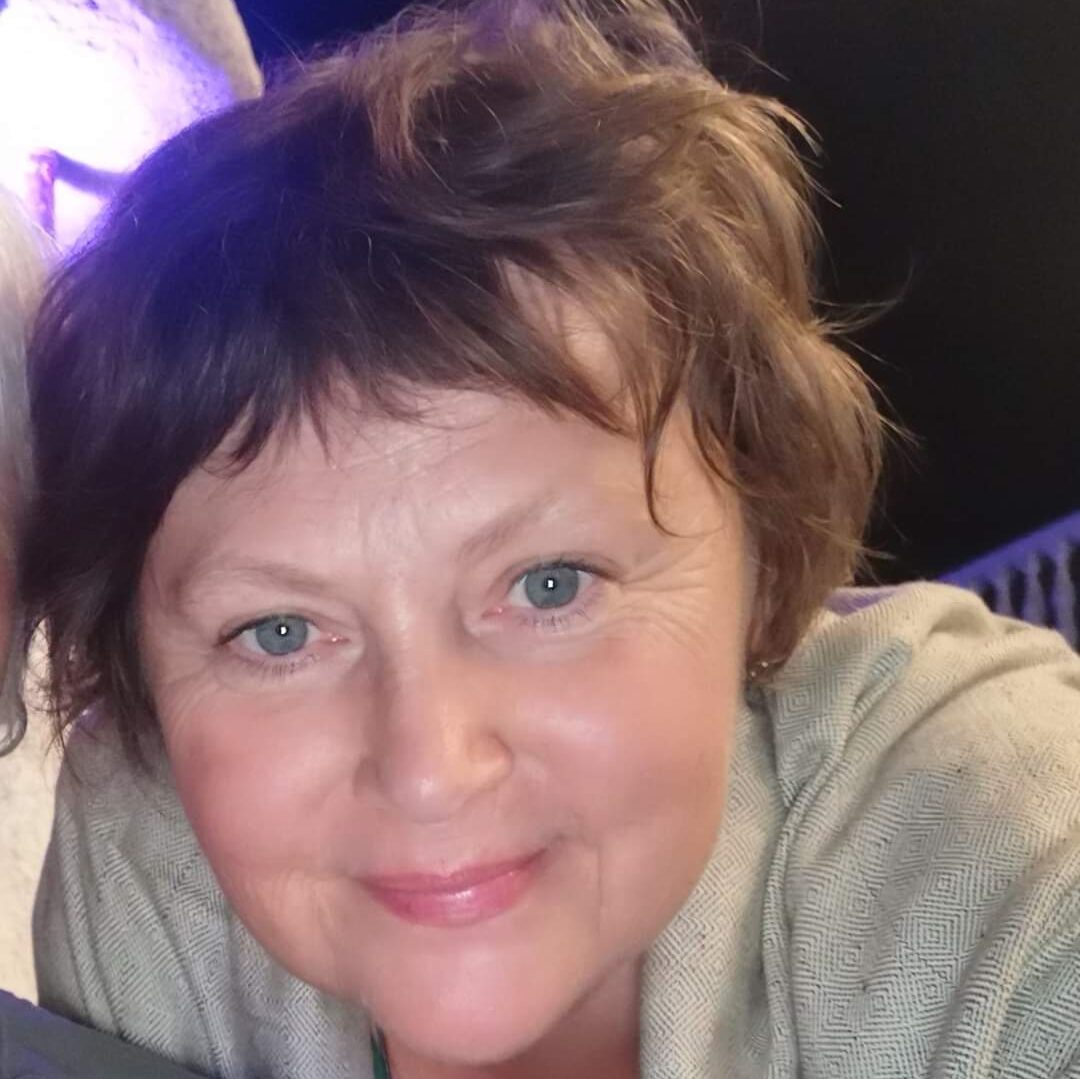In a writer, actress and activist, AGNIESZKA RAKOCZY meets a determined woman moved by the power of music
I first met Nouritza Matossian when she came to Cyprus in the early 2000s to stage her one-woman show about the famous Armenian artist Arshile Gorky. In putting the show together, the Nicosia-born, UK-educated writer, actress, broadcaster and human rights activist drew from interviews she had conducted both with and about the women who had featured in the artist’s life. Matossian played all the roles – transforming herself into one or other of the multiple characters, bringing them to life with just the merest change of detail, costume or posture. With the introduction of a headscarf or the adjustment of a jacket collar, she would morph into a totally new persona, each with a tragic tale to tell.
As we chat, she explains that the idea of a staged performance emerged following publication of her book Black Angel, A Life of Arshile Gorky in 1998. After the book appeared, she was approached by several institutions and asked if she would be willing to give a talk about the biography.
“At the same time, a friend asked me to do a performance for her college called Song of Myself. It was supposed to be about myself and my Armenian roots, and I suddenly thought ‘I don’t want to do a performance about myself, I want to do it about Gorky’. So, impromptu-style, I acted out some of my ideas for my friend: first as Gorky’s mother, the only one I never actually talked to because she died a long time before, during the Armenian genocide, and then as his sister, as his first sweetheart and finally as his wife, all of whom I had interviewed. And my friend responded – ‘that is it, you do realise you look like his mother, do it in Armenian too.’ So I did, and it worked and became all the richer because I could use their own words and by doing it in chronological order, it held very well together.”
The show was a success as was the Gorky biography. Matossian says she worked on the bio on and off for 30 years, ever since as a young girl she saw an exhibition of his work in one of the British galleries.

Arshile Gorky as portrayed in Ararat
Gorky, whose real name was Vostanik Manoug Adoian, has been hailed as one of the foremost American painters of the 20th century. For most of his life, he claimed to be a Georgian nobleman and a relative of the famous Russian writer Maxim Gorky. At the time Matossian began her research most art critics claimed not only that there was no evidence of any Armenian cultural influence in his works but that he deliberately avoided it because he didn’t want his ‘Armenianism’ to taint his art.
“I somehow could not believe it,” Matossian says. “I felt such a familiarity with his works from the very first moment and I felt so emotional when I realised he was Armenian. I was angry that nobody cared about his Armenian roots so I started going to every Armenian art exhibition, read all books on Armenian art and studied the Armenian illuminated manuscripts at the British Museum. And you know what? One day, I was looking at the slides of these manuscripts beamed onto my ceiling and I put them slightly out of focus and it was all there. Gorky’s paintings with all their colours and shapes and interwoven forms. And then I began to understand. Gorky’s grandfather had been a priest so he, as a child, used to go to church. At that time, they read from these illuminated books, so I believe Gorky actually saw these paintings as a kid as well as the carpets Armenian woman were weaving in the villages, along with the wood carvings and the reliefs and icons. But I don’t think he was paying tribute or referencing them. He was living them. He was pulling it all out from his subconsiousness.”
Relentless and thorough researcher that she is, Matossian delved further into what lay behind the artist’s reasons for pretending that he was Georgian.
“Of course, he created this new identity for himself because Armenians in America were these poor people who arrived on boats while Georgians and Russians were much more chic, much more fashionable. But I also think he didn’t want to tell strangers his real story, since it was just too much. His mother died of starvation. They had walked for miles, they had suffered so much. He only talked about himself as an Armenian when he was with Armenians and close friends.”

Nouritza with her husband
Matossian is compassionate in her understanding of this. She herself comes from a family that survived the Armenian genocide and she readily admits that she would not be willing to talk about the horrible experiences members of her family were forced to endure if the subject were raised, for example, at a reception or a cocktail party.
“It does happen sometimes — people say ‘oh, you are an Armenian, we heard of genocide, what about your family?’. And I really don’t want to talk about it while holding a glass of wine in my hand. I don’t want to talk about it like this.”
The 76-year-old Matossian well remembers the long evenings spent in her parents’ house in Nicosia’s Arab Ahmet when her maternal grandmother and other Armenian women recalled the horrors they experienced before ending up in Cyprus.
“Some of their stories were really awful and they didn’t realise that I was there and could hear everything. I used to have nightmares and grind my teeth because of the stories. I never wanted to grow up because I thought this is what growing up would mean.”
Nouritza was the only girl among three siblings. Her father was a wealthy merchant and a factory owner. He sent little Nouritza and her two brothers to the Junior School and then for further education to England. Nouritza ended up at a public all-girls school in Devon and loved it.
“Sending a girl abroad wasn’t common at that time. It took a year to persuade my parents. But I really wanted to study. In front of me, I had this vision of a domesticated wife who has to obey her father and her brothers and who mustn’t talk in front of a man and I was really scared of leading a life like this. I always said I will never get married. I wanted to read and study.”
After graduation, Matossian was determined to continue her education so she begged her parents to allow her to go to university. Once again, they relented. Knowing her flair for the dramatic, friends and some members of the family expected her to study theatre but her father would not countenance it so Nouritza chose to read philosophy because she was “attracted to abstract thinking” and wanted “to sharpen her mind”.
What she wanted even more than knowledge was freedom.
“I wanted to be free in London and to absorb as much as I could. And I did it. I had a college room in Hampstead that I shared with other girls, wonderful lecturers, a great intellectual atmosphere, and I was focused on doing my degree. And then I discovered modern art and modern music and this was wow, such an epiphany. I didn’t study music but I played piano from a very early age and suddenly there were all these concerts at the Southbank, [Karlheinz] Stockhausen, [Iannis] Xenakis, [Pierre] Boulez… I was in my early 20s and I used to go to rehearsals and backstage just to be part of this process. And I decided that after my degree I would write a thesis on Chomsky and the linguistic analysis of music because I was shocked that there was such a big divide between classical music concerts and these really modern pieces.”
She persevered and ended up deciding to write a book that would compare the four modern composers she found the most interesting: Stockhausen, Xenakis, Boulez and Luciano Berio.
And her diligence impressed. During a conversation with Pierre Boulez, he remarked that she seemed to know more about his music that he did while an enthused Xenakis said he was very happy that such a young person understood his music so well.
Such enthusiasm was nothing compared to what happened during one of her ensuing trips to Cologne to familiarise herself with the works of Stockhausen. While visiting a house where some of the musicians working with Stockhausen were staying and where his archive was located, she met Rolf Gehlhaar, a handsome composer who had just quit his job as an assistant to the great man himself.
“I was sitting in the small room where the scores were kept, trying to follow Stockausen’s notes, which was quite difficult because most of them are graphic symbols, when the door opens and in comes Rolf,” she recalls. “And he asks me how am I getting on and I say ‘not that well’. Rolf knew Stockhausen’s work inside out and so he offers to help.”
The rest, as they say, is history.
But what about those numerous declarations that she would never marry?
“Well, yes,” she admits, but “who could resist the power of the relationship we had together? We had a similar approach to things. We listened to music all our lives. I could sense what he was feeling about music and he could sense what I was feeling. We just had this very strong connection both through music and also other shared values. Plus he was very good looking and had a very funny sense of humour. I really believe we were just meant to be.”
Rolf, a composer, soon to be recognised as one of the pioneers of electronic and computer music, and Nouritza had two sons, and collaborated on numerous projects. Born in Germany, he was raised in the United States, his father, a scientist, aircraft designer and test pilot, having been offered a job there after the Second World War.
It was Rolf, who helped her realise that rather than devote her book to the four composers as planned, it would be better to focus on just one “because otherwise I would spend a lifetime finishing the book”.
She remembers him saying, “‘it seems to me you are the most interested in Xenakis and he was spot on. Xenakis was a fantastic man. He had a great mind and he saw the world of music and science in a totally different way to the others. They always said he was just an engineer who counted numbers but I found his approach fascinating.”
Matossian was to spend 10 years working very closely with the composer on his biography. Even at this far remove, she still talks about that time with sparkling enthusiasm. “I thought it was fantastically interesting. His music was marvellous, fresh. No one had ever thought of anything like this before. He made it really work on a grand scale,” she reminiscences.
“The hard part was that he never wanted to talk to me about his childhood and I always instinctively felt that I had to understand his early years because I sensed that the violence and power that were in his music came from something that was not only personal but also political.”
When the composer eventually agreed to talk about his youth, the memories he shared helped shape the first chapter of the biography that was initially published in French in 1981 and went on to great success.
That level of acclaim seems to be true of whatever Matossian turns her hand and mind to. Deservedly so given the diligence and breadth of her prodigious research whatever the topic, whoever the subject.
We turn to some of her other works – collaborating with the Armenian director Atom Egoyan on his film Ararat that was based on her Gorky book. And her very personal interviews with the Armenian journalist Hrant Dink, who was assassinated in Turkey in 2007, which inspired the heart-wrenching documentary she went on to produce, Heart of Two Nations.
So what now?
“Well, my husband was sick. Diagnosed in 2017, he died in 2019 and a strange thing happened when he died. I just could not listen to music any more. It was too emotional. So much of the music is him, you know,” she says.
“Then Covid came and actually it was convenient because I didn’t really want to go out. I stayed at home and did a lot of gardening. I turned my garden into an orchestra. I put a lot of colours and shapes into it and to me it is like music. When I go out there it is like the whole orchestra.
“And now it feels to me that I have to decide where to jump to in my work and while I have some ideas for different kinds of projects, and I am doing some writing, I am not going to tell you anything about it….”
And she smiles and, true to her word, the rest is silence.







Click here to change your cookie preferences